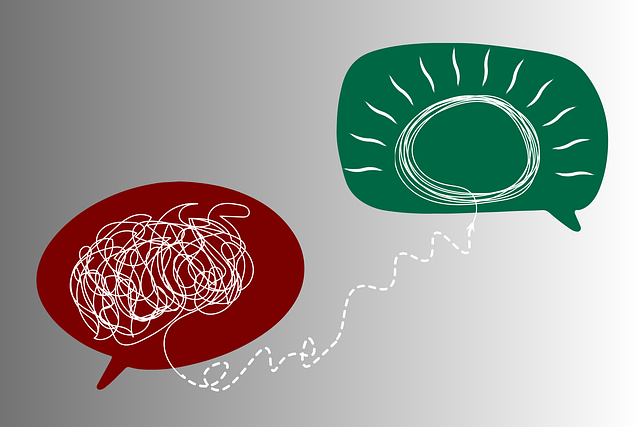Mental wellness coaching offers a powerful, supportive approach to personal growth, especially through Louisville phobias therapy. This collaborative process focuses on building inner strength, teaching coping strategies, and promoting overall well-being using evidence-based practices. Tailored strategies combined with cognitive behavioral therapy (CBT) help clients overcome specific fears like phobias, aligning with the trend of destigmatizing mental illness. Effective coaching programs identify target audiences by assessing demographics and unique challenges, ensuring personalized support. Interactive sessions use techniques such as CBT, mindfulness exercises, journaling, and role-playing to address individual needs. Measuring success through diverse assessment tools and incorporating feedback optimizes the program, focusing on positive thinking, resilience, and policy advocacy.
Mental wellness coaching programs have emerged as a powerful tool for personal growth. This comprehensive guide explores the development of such programs, focusing on key aspects like understanding mental wellness coaching, incorporating techniques from Louisville Phobias Therapy, tailoring strategies to diverse audiences, designing effective sessions, and measuring success. By delving into these areas, coaches can create impactful, results-driven experiences that enhance clients’ overall well-being.
- Understanding Mental Wellness Coaching: A Comprehensive Overview
- The Role of Louisville Phobias Therapy in Modern Coaching Programs
- Identifying Target Audiences and Customizing Coaching Strategies
- Designing Effective Coaching Sessions: Techniques and Activities
- Measuring Success and Incorporating Feedback for Continuous Improvement
Understanding Mental Wellness Coaching: A Comprehensive Overview

Mental wellness coaching is a transformative process that empowers individuals to navigate their mental health journeys with support and guidance. It’s more than just therapy; it’s a collaborative partnership focused on fostering inner strength development, enhancing coping mechanisms, and promoting overall well-being. Through tailored strategies, coaches help clients identify and challenge negative thought patterns, manage stress reduction methods, and cultivate resilience in the face of challenges like phobias and anxiety relief.
Louisville phobias therapy, for instance, leverages coaching techniques to help individuals understand and overcome specific fears. This holistic approach not only addresses symptoms but also equips clients with lifelong tools to maintain mental wellness. By integrating evidence-based practices, coaches facilitate personal growth, enabling individuals to lead fulfilling lives while managing stress and cultivating a deeper sense of self-awareness.
The Role of Louisville Phobias Therapy in Modern Coaching Programs

In modern coaching programs focused on mental wellness, Louisville Phobias Therapy plays a pivotal role in addressing specific and often debilitating fears that can significantly impact an individual’s daily life. This therapeutic approach is designed to help clients confront and overcome phobias, thereby enhancing their overall mental health. By employing evidence-based techniques such as cognitive behavioral therapy (CBT), coaches equipped with Louisville Phobias Therapy skills can facilitate profound transformations in their clients’ lives.
Integration of these specialized therapies into coaching programs reflects a broader Mental Health Policy Analysis and Advocacy trend, aiming to destigmatize mental illness and promote burnout prevention. The focus on mental wellness extends beyond mere absence of disorder; it emphasizes flourishing and resilience. Louisville Phobias Therapy contributes to this holistic approach by empowering individuals to manage their phobias effectively, leading to improved quality of life and greater participation in meaningful activities, thus enriching both personal and professional spheres.
Identifying Target Audiences and Customizing Coaching Strategies

Identifying target audiences is a pivotal step in developing effective mental wellness coaching programs. By understanding specific demographics and their unique challenges—such as Louisville Phobias Therapy for individuals navigating anxiety disorders—coaches can tailor their strategies to deliver personalized support. This involves assessing age groups, cultural backgrounds, and life stages to ensure the program resonates with the target audience’s experiences and needs.
Customizing coaching strategies encompasses more than just adapting communication styles; it requires designing activities, exercises, and interventions that align with the identified target group. For example, incorporating Self-Awareness Exercises can help participants gain insights into their emotions and triggers. Moreover, considering the impact of burnout on various segments of society, coaches might integrate techniques for Burnout Prevention tailored to the specific audience’s lifestyle and work demands. This personalized approach fosters a sense of engagement, making coaching more accessible and impactful.
Designing Effective Coaching Sessions: Techniques and Activities

Effective coaching sessions are designed to be interactive and engaging, incorporating various techniques and activities tailored to address individual needs. Mental wellness coaches in Louisville can utilize cognitive-behavioral therapy (CBT) methods to help clients challenge negative thought patterns and replace them with healthier alternatives, a strategy proven effective for conditions like phobias. Each session should begin by setting clear goals and expectations, fostering open communication throughout.
Activities might include mindfulness exercises, such as guided meditation or deep breathing techniques, to promote relaxation and stress reduction. Journaling prompts can encourage clients to reflect on their progress and track changes in mood and behavior, enhancing self-awareness. Incorporating physical activities like yoga or short walks can also benefit mental wellness by promoting a sense of grounding and connection with the present moment. Additionally, role-playing scenarios can help individuals practice new coping skills in safe, simulated environments.
Measuring Success and Incorporating Feedback for Continuous Improvement

Measuring success and incorporating feedback are pivotal components for the continuous improvement of mental wellness coaching programs, especially in addressing specific concerns like Louisville Phobias Therapy. Effective tracking involves setting clear, achievable goals aligned with participants’ needs and using diverse assessment methods to gauge progress. This could include self-reported surveys, observer evaluations, and qualitative interviews, allowing for a holistic understanding of each client’s journey. By regularly collecting and analyzing these insights, coaches can identify what’s working and areas that need refinement.
Incorporating feedback fosters a dynamic learning environment, encouraging participants to actively engage in their healing process. It empowers them to provide valuable perspectives on the program’s effectiveness and offers tailored suggestions for improvement. This iterative process not only enhances the overall coaching experience but also ensures the curriculum remains relevant and responsive to evolving mental health needs, such as promoting positive thinking, building resilience, and advancing Mental Health Policy Analysis and Advocacy.
Mental wellness coaching programs, enriched by techniques like Louisville Phobias Therapy, are transforming personal growth. By tailoring strategies to diverse audiences and implementing effective session designs, coaches can significantly impact mental health. Continuous improvement, measured through feedback, ensures these programs remain impactful and accessible. This holistic approach to coaching not only empowers individuals but also contributes to a more supportive and resilient community.














